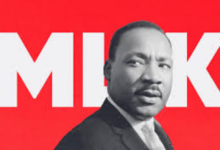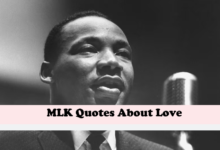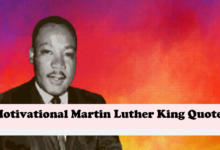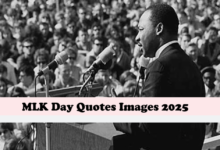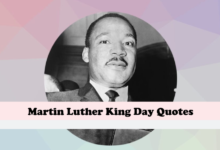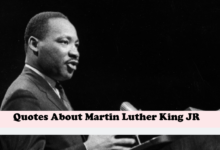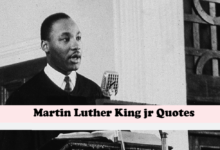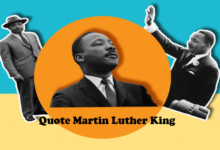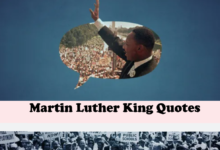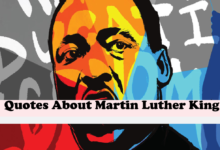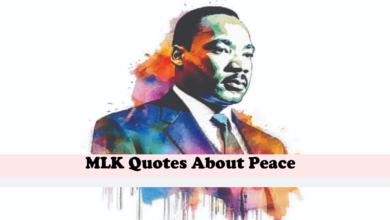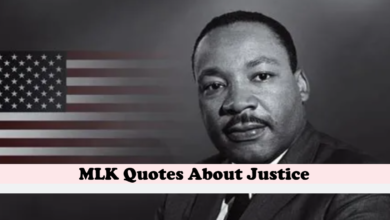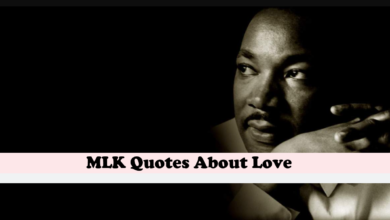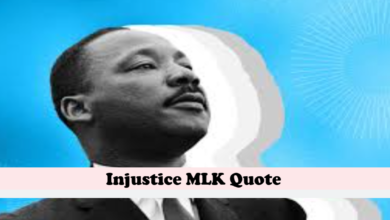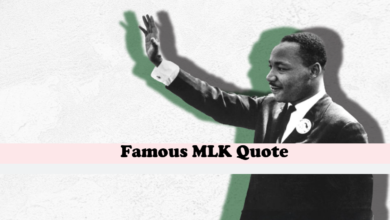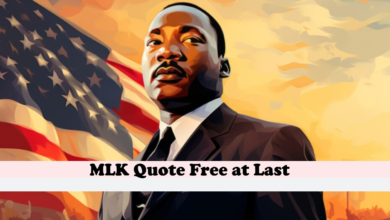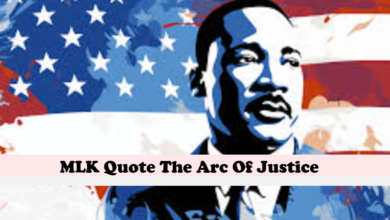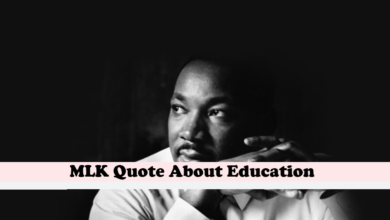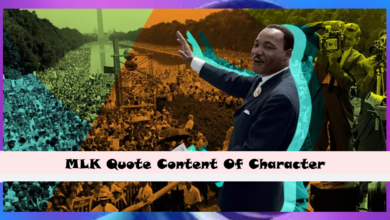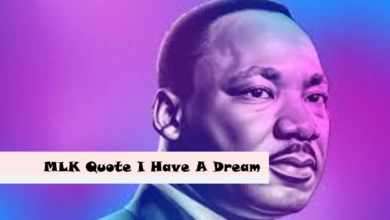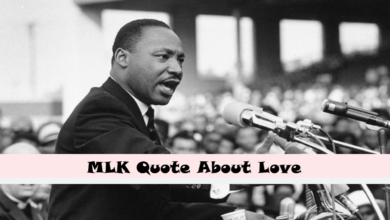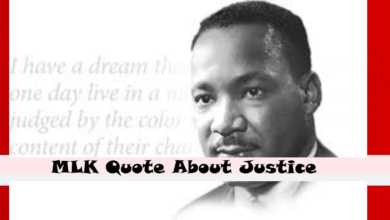MLK Quote About Service
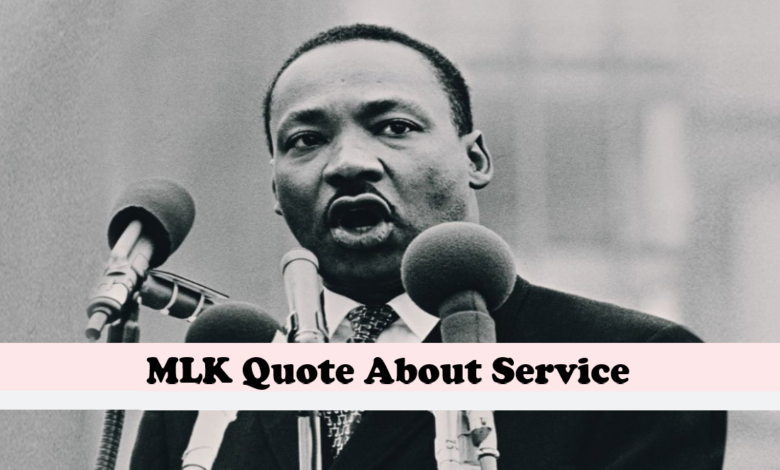
Martin Luther King Jr. is often celebrated for his advocacy of civil rights, nonviolent resistance, and his unwavering commitment to justice and equality. However, another key aspect of his philosophy that resonates deeply in today’s world is his belief in the importance of service to others. King understood that true leadership and meaningful social change were born from acts of service, and he consistently emphasized this in his speeches and writings.
One of King’s most powerful quotes about service is: “Everybody can be great, because everybody can serve. You don’t have to have a college degree to serve. You don’t have to make your subject and verb agree to serve. You only need a heart full of grace. A soul generated by love.” These words are not just about the act of service; they are about the spirit that motivates service and the universal potential for greatness that lies within each person, regardless of their background or status.
In this blog post, we will explore the significance of Martin Luther King Jr.’s perspective on service, how it shaped his approach to activism, and the lasting impact of his words on modern-day movements for social justice.
MLK Quote About Service
King’s statement, “Everybody can be great, because everybody can serve,” speaks to the universal nature of service. He believed that greatness was not defined by fame, wealth, or education but by one’s capacity to serve others. For King, the true measure of greatness lay in the ability to contribute positively to the lives of others and to work toward the common good. In this sense, service was not an activity reserved for a select few—it was an opportunity for anyone and everyone to make a meaningful difference.
King’s emphasis on the universal ability to serve was rooted in his deep belief in the interconnectedness of all people. He saw humanity as a community bound together by shared responsibilities. The idea of service, therefore, was not limited to grand acts of philanthropy or activism. It could be found in small, everyday actions that demonstrate kindness, compassion, and a willingness to help others. Whether through volunteer work, advocating for justice, or simply being a supportive friend, service could take many forms.
“I have a dream that my four little children will one day live in a nation where they will not be judged by the color of their skin but by the content of their character.”
“Forgiveness is not an occasional act. It is a permanent attitude.”
“We must learn to live together as brothers or perish together as fools.”
“Take the first step in faith. You don’t have to see the whole staircase, just take the first step.” [from the recollection of Marian Wright Edelman]
“With this faith, we will be able to hew out of the mountain of despair a stone of hope.”
“A riot is at bottom the language of the unheard.”
“The beauty of genuine brotherhood and peace is more precious than diamonds or silver or gold.”
“The arc of the moral universe is long, but it bends toward justice.”
“True peace is not merely the absence of tension; it is the presence of justice.”
“Injustice anywhere is a threat to justice everywhere.”
“I believe that unarmed truth and unconditional love will have the final word in reality. That is why right, temporarily defeated, is stronger than evil triumphant.”
“The whirlwinds of revolt will continue to shake the foundations of our nation until the bright day of justice emerges.”
“I think I have discovered the highest good. It is love.”
“I have decided to stick with love. Hate is too great a burden to bear.”
“Darkness cannot drive out darkness; only light can do that. Hate cannot drive out hate; only love can do that.”
“In some not too distant tomorrow the radiant stars of love and brotherhood will shine over our great nation with all their scintillating beauty.”
“He who hates does not know God, but he who loves has the key that unlocks the door to the meaning of ultimate reality.”
“When I talk about love … I am not talking about emotional bosh. I am not talking about some sentimental or even some affectionate emotion. I am talking about something much deeper.”
“Darkness cannot drive out darkness: only light can do that. Hate cannot drive out hate: only love can do that.”
― Martin Luther King Jr.,
“I have decided to stick to love…Hate is too great a burden to bear.”
― Martin Luther King Jr.
“I have decided to stick to love…Hate is too great a burden to bear.”
― Martin Luther King Jr.
“Our lives begin to end the day we become silent about things that matter.”
― Martin Luther King Jr.
“In the end, we will remember not the words of our enemies, but the silence of our friends.”
― Martin Luther King Jr.
Faith is taking the first step even when you can’t see the whole staircase.”
― Martin Luther King Jr.
“If you can’t fly then run, if you can’t run then walk, if you can’t walk then crawl, but whatever you do you have to keep moving forward.”
― Martin Luther King Jr.
“But I know, somehow, that only when it is dark enough can you see the stars.”
― Martin Luther King, Jr.
“Let no man pull you so low as to hate him.”
― Martin Luther King Jr., A Knock at Midnight: Inspiration from the Great Sermons of Reverend Martin Luther King, Jr.
“There comes a time when one must take a position that is neither safe, nor politic, nor popular, but he must take it because conscience tells him it is right.”
― Martin Luther King Jr., A Testament of Hope: The Essential Writings and Speeches
“Nothing in the world is more dangerous than sincere ignorance and conscientious stupidity.”
― Martin Luther King Jr.
“The ultimate measure of a man is not where he stands in moments of comfort and convenience, but where he stands at times of challenge and controversy.”
― Martin Luther King Jr.
“Intelligence plus character-that is the goal of true education.”
― Martin Luther King Jr.
“Everybody can be great…because anybody can serve. You don’t have to have a college degree to serve. You don’t have to make your subject and verb agree to serve. You only need a heart full of grace. A soul generated by love.”
― Martin Luther King Jr.
Service and the Pursuit of Justice
For King, service was inseparable from his vision of social justice. He believed that the fight for civil rights and equality could only be won if individuals were committed to serving others and making sacrifices for the greater good. His leadership in the Civil Rights Movement was, in many ways, an embodiment of this principle.
King’s commitment to service was demonstrated through his tireless activism for racial equality, voter rights, and social justice. Whether organizing marches, leading boycotts, or speaking out against injustice, King’s life was dedicated to serving his community and the broader cause of civil rights. He saw service as an essential part of the movement for change—not only in terms of tangible victories, such as the Civil Rights Act of 1964 and the Voting Rights Act of 1965, but also in terms of the moral work that needed to be done to transform society.
In his sermons and speeches, King frequently spoke about the idea of service as a moral obligation. He believed that each individual had a duty to fight against injustice, whether through direct action or by supporting those who were suffering. His concept of service was not about charity in the traditional sense, but about working to create lasting, systemic change that would benefit everyone, particularly marginalized and oppressed communities.
One of King’s most famous and relevant speeches on the theme of service was delivered during his address at the Ebenezer Baptist Church in 1968, just before his assassination. He said, “Life’s most persistent and urgent question is, ‘What are you doing for others?’” This question encapsulated his belief that service to others was not an optional activity, but a fundamental aspect of living a meaningful and purposeful life.
Service as a Tool for Transformation
King’s view of service was deeply connected to his broader vision of societal transformation. He believed that service was a powerful tool for social change, as it could bring people together across racial, cultural, and economic divides. By serving others, individuals could break down the barriers that separated them and build a more compassionate and just society.
King’s idea of service was not just about helping individuals in need—it was about transforming the systems that perpetuate injustice. In this sense, service was an act of resistance. Through acts of service, individuals could challenge the status quo, question oppressive structures, and work to create a more equitable world. King’s own acts of service, from his leadership in the Montgomery Bus Boycott to his participation in the March on Washington, were forms of resistance to racial segregation and inequality.
Service, for King, was also about building community. His vision of service was not just about isolated acts of kindness, but about collective action aimed at transforming society. He often emphasized that true service requires solidarity with others, especially those who are most vulnerable. By coming together to serve, individuals could strengthen the fabric of their communities and foster a spirit of cooperation and unity.
The Heart of Service: Love and Compassion
At the core of King’s philosophy of service was love. As he famously stated in his quote, “You only need a heart full of grace. A soul generated by love.” For King, love was the driving force behind service. He believed that acts of service were most meaningful when they were motivated by genuine care for others, especially those who were suffering. Love, in King’s view, was not just an emotion—it was a powerful, transformative force that could change the world.
King’s commitment to love was evident in his nonviolent approach to activism. He rejected hatred and violence, even in the face of brutality, and instead advocated for a “beloved community” where people of all races, creeds, and backgrounds could live together in peace and harmony. His dedication to nonviolence was rooted in his belief that love had the power to heal divisions and create lasting peace.
Love and service, for King, were inseparable. He saw them as two sides of the same coin—love was the motivation for service, and service was the expression of love. By serving others, people could demonstrate their love for humanity and work to create a world that reflected the values of compassion, justice, and equality.
Service in the Modern World
King’s words about service continue to resonate today. In a world that often seems divided and uncertain, the call to serve others remains as urgent as ever. From volunteering in local communities to advocating for social justice on a global scale, acts of service continue to play a vital role in addressing the challenges we face.
King’s message of service also calls on us to engage in the fight for justice, particularly in the areas of racial inequality, poverty, and human rights. As we work to create a more just and equitable world, we can take inspiration from King’s belief that service is a tool for transformation and a path to greatness. Whether through small acts of kindness or large-scale social movements, service remains a powerful way to make a positive impact on the world.
Conclusion: The Lasting Legacy of King’s Call to Service
Martin Luther King Jr.’s belief that “everybody can be great, because everybody can serve” is a powerful reminder of the importance of giving back to others and working toward the greater good. For King, service was not just an act—it was a way of life, rooted in love, compassion, and a commitment to justice. His legacy continues to inspire millions of people around the world to serve others and work for a better, more just society. In a time when the world faces complex challenges, King’s call to service remains as relevant and important as ever.
